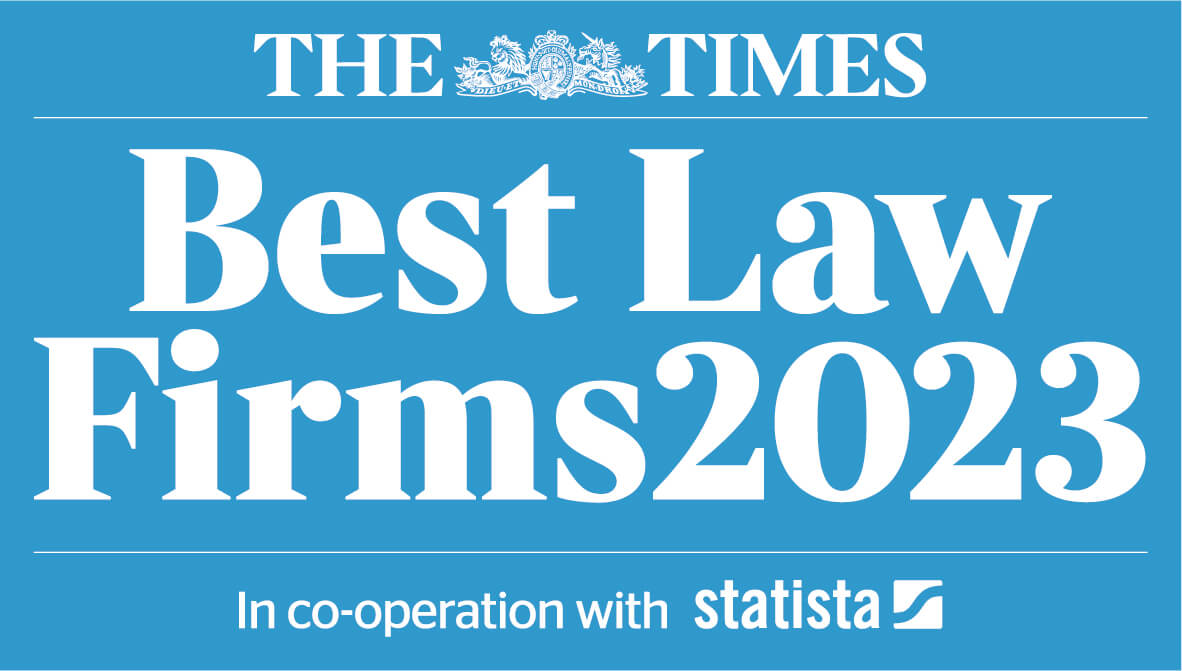Joint Ownership of Property
Joint Property Ownership
Joint ownership of a property could be the best way for you to get your first step on the property ladder. Speak to our property lawyers who will be happy to go through the joint own process with you.
The benefits of joint ownership
There is no need to struggle any longer or to keep dreaming of properties that are out of your financial reach. Your constant saving for a large deposit and relying on a single income to make that important purchase could come to an end with a co-buying arrangement.
You would:
- Save money on utility bills, council tax and household repairs by sharing the cost of these with your co-buyers.
- Build equity through your investment in your new home growing (subject to positive market conditions).
- Share the initial purchasing costs such as solicitor’s fees, surveyor’s fees, stamp duty land tax and search fees by sharing the cost of these with your co-buyers.
Ultimately buying a property with a mortgage is often cheaper than paying rent!
Read our blog posts Tenants in Common vs Joint Tenants and Severance of a joint tenancy.
What is a joint ownership arrangement?
- Up to 4 friends or siblings can buy together (subject to any lenders requirements)
- Each of your savings for the property purchase will be pooled together to achieve the deposit required for your selected property.
- Mortgages are available for this new co-buying arrangement.
How the joint ownership arrangement works
Deposit – you and your co-buyers will put your savings together to make up the deposit for the property purchase
Shared responsibility – you and your co-buyers would be equally responsible for the mortgage on the property plus the outgoings and repairs. We suggest that this is set up and recorded in a trust deed in the simplest way possible so it is easier to interpret in the future what was agreed at the outset of your purchase.
Trust Deed – this will be prepared by our conveyancing solicitors to record the following:
- Size of deposit paid by each co-buyer
- Mortgage responsibilities – who pays what
- The procedure for leaving the co-ownership arrangement
- What happens if everyone decides to sell up
- Financial split on completion of the sale
The trust deed ensures that your interest in the property is protected in a predetermined way in the event that the co-buying arrangement no longer remains feasible.
Your mortgage responsibilities
Each joint owner’s obligation to contribute towards the mortgage would be set out in the trust deed. It is important to note that when a property is mortgaged, then all the co-buyers are jointly and severally liable for the mortgage repayments. This means that if one person stops contributing towards the mortgage then the remaining joint owners will be responsible for that person’s share.
What happens if I decide to leave the property and end my joint ownership arrangement?
If you want to leave the joint ownership arrangement then the trust deed will set out the terms for doing this. It will state that you need to give notice of your intention to leave the co-buying arrangement and claim your share in the property. The remaining co-buyers can decide to pay you your share or sell the property.
Selling up – how easy is the process?
The conveyancing will be the same as the purchase of any property. In addition to this, you will need to have a trust deed prepared. There would be an additional cost for the preparation of this deed which would be a bespoke document setting out your co-buying arrangement.
How do we manage to split the finances when we come to sell?
The trust deed will set out who will receive what in terms of the return of their deposit and a percentage share in the net proceeds of the sale of the property once it’s time to sell.
Issues to be aware of
- There will be additional legal costs for the preparation of the trust deed.
- There may be additional legal costs to consider in dealing with any disagreements arising from the co-buying arrangement and the trust deed.
- If the co-buying arrangement and trust deed are complex then the arrangement for dealing with the same maybe complicated and difficult to follow.
- You need to trust your fellow co-buyers; this arrangement will not work for everyone.
- If the property is mortgaged then all borrowers will be jointly and severally liable for the mortgage. This means that each person will be potentially responsible for mortgage repayments in the event that one or more co-buyers stops paying towards the same.
- If you have a change in circumstances and you want to terminate the co-buying arrangement then the remaining co-buyers will need to either buy your share off you or sell the property. They may not want to do this or have the funds available to do the same. In these circumstances, you have a right to go to court to have this matter resolved.
- Obviously, your financial interest in the property will only grow if the property prices continue to grow.
We are highly experienced solicitors working together with mortgage providers to support and help our clients.
Simon Nosworthy manages property transactions throughout England and Wales. His specialist team deal with buying, selling and leasing both residential and commercial property. They are hugely proud of their reputation for providing a first-class, efficient and pro-active service.
KFH Financial Services
Philip King and Lee Watts co-founded Kinleigh as a specialist property management company and it has grown into one of the Capital’s most successful property services groups. With a team of over 800 staff and a network of 60 branches across the Capital, the business has diversified to provide a comprehensive range of property services and residential sales.
Case Law – Gallarotti v Sebastianelli [2012] EWCA
The case concerned a dispute between two friends who purchased a flat together. There was no written declaration of trust relating to what share each party had in the flat and the parties made unequal contributions to the purchase price.
Mr Sebastianelli paid the larger contribution and the property was registered in his sole name. The Respondent, Mr Gallarotti argued that the parties expressly agreed that the property would be held in equal shares and that he would pay larger contributions to the mortgage payments to make up for the fact that he made a lower cash contribution to the purchase price. There was a dispute between the parties as to whether or not Mr Gallorotti had made these larger mortgage contributions.
Twelve years after the purchase of the flat, the friendship broke down and Mr Gallorotti brought proceedings to obtain a declaration as to his interest in the flat. In the first instance, the Court found in favour of Mr Gallorotti accepting his case that the parties were joint owners of the flat each entitled to a 50% share in the property.
Mr Sebastianelli appealed the decision to the Court of Appeal, who reversed the initial judge’s decision and declared that the correct shares were in fact 75% to Mr Sebastianelli and 25% to Mr Gallarotti. This decision was based on the fact that Mr Gallarotti had not produced sufficient evidence to show that he had made the contributions to the mortgage which he claimed. In fact, the evidence showed that Mr Sebastianelli had made substantial mortgage repayments and Mr Gallarotti had made very little contribution at all. The Court concluded that the parties had agreed that they would have equal shares in the property which would broadly represent their contributions to it, which was why they agreed that Mr Gallarotti should pay more towards the mortgage to make up for his smaller cash contribution in the first place. The fact that he had not subsequently done so, meant that he could not now rely on the agreement as the conditions of it had not been met. These two were sharing a flat, not a family unit so their intentions must be looked at in that light.
Speak to us about joint ownership
Call us 020 7485 8811
Email us Send us an email and we’ll get back to you
I've recently used Osbornes for my home purchase and an equity transfer. Rachael was fantastic all the way through, keeping me informed and up to speed as to the purchase progress.
We hope not to move again for a long time, but when we do we will choose Osbornes for the conveyancing. Thank you.
Buying and selling a house can often be a challenging process, but communication and service I received from Osbornes was second to none. I would recommend them without hesitation - 5 stars
I have used Osbornes a few times and I’m really happy with the service provided. They provide a very professional, polite and efficient service and I would highly recommend them.
Osbornes team was great with the sale of our property, everything went smoothly and very responsive
Osbornes are really thorough, professional & friendly. They were aware of the need for haste in my sale & they did everything they could to achieve the results of completing before the end of the SDLT holiday.
Residential Property News & InsightsVIEW ALL
- 19.5.2023
Declaration of Trust for Property
If you are buying a property jointly, you may want to consider making a declaration of trust to record your...
Read more - 13.2.2023
Transfer of Equity Stamp Duty
Do I Pay Stamp Duty Land Tax When Transferring Property into My Partner’s Name? When it comes to property...
Read more - 13.2.2023
Shared Ownership Stamp Duty
Do you pay stamp duty on shared ownership? When you buy a new shared ownership property, you are given two...
Read more - 8.2.2023
Severance of a Joint Tenancy
Severing a Joint Tenancy Normally, when couples buy a property together they do so as joint tenants. This means they...
Read more - 8.2.2023
Tenants in Common vs Joint Tenants
Tenants in Common vs Joint Tenants: Which is best for buying a property together? When it comes to buying a...
Read more - 20.1.2023
Stamp duty tax to remain the same until 2025
Good news for buyers as the current SDLT rates will remain until 2025 Buyers looking to purchase this year will be...
Read more - 23.9.2022
First-time buyer stamp duty exemption – don’t get...
Stamp duty is the bane of every home buyer, with only first-time buyers being exempt from paying the tax if...
Read more - 24.9.2021
First Time Buyers Tax Relief Reminder
First-time buyers have been urged to make the most of a ‘forgotten tax relief’ that could save them thousands of...
Read more - 30.1.2021
Making Alterations to a Leasehold Property
What is a Leasehold Property? There are two main types of property in England and Wales, freehold and leasehold property....
Read more - 5.1.2021
10 Top Tips to Avoid Delays When Selling Your...
Thinking about marketing your property for sale? Simon Nosworthy, Conveyancing Solicitor at Osbornes sets out his top 10 tips of things...
Read more - 27.5.2020
Post lockdown conditions have created a perfect time...
A short-term drop in housing prices caused by Covid-19 and the existing low cost of borrowing have created the ‘perfect...
Read more - 13.5.2020
Property Market Gets The Green Light!
Buyers, Sellers, Estate Agents, Solicitors, Mortgage Companies, Surveyors and many more have been waiting since March for the Government to...
Read more - 6.5.2020
Let’s talk leasehold charges
Buying a home warrants a financial commitment like no other. From needing cash for a deposit, mortgage fees, conveyancing fees,...
Read more - 22.5.2019
What Is Equity Release?
Equity release is a type of financial product available to homeowners which allows them to access some of the equity...
Read more - 25.3.2019
London property ‘hotspots’
Property professionals across the country have made their predictions as to what is in store for the property market over...
Read more















